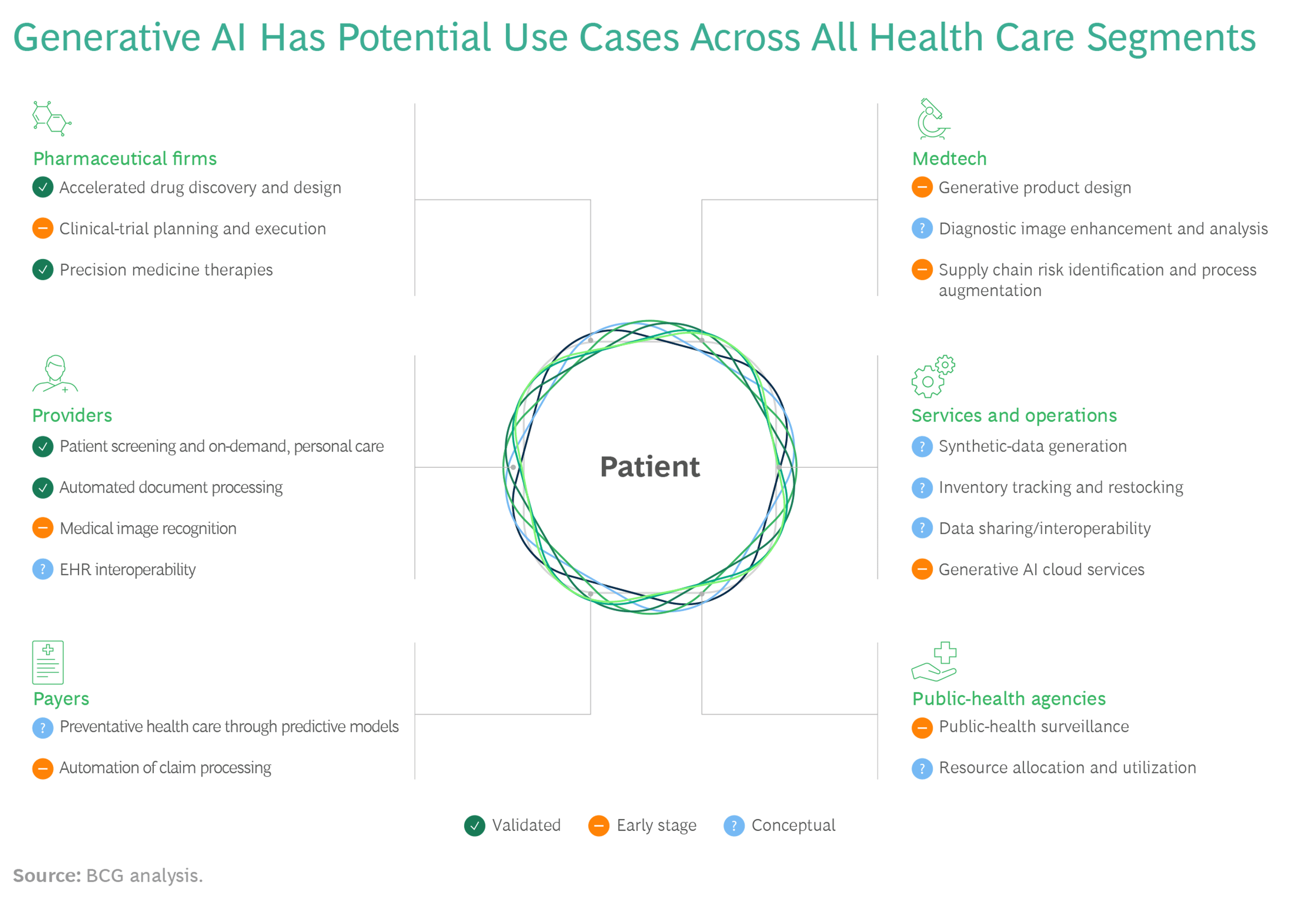In an era marked by technological advancements, the landscape of healthcare is on the brink of a profound transformation driven by the emergence of generative artificial intelligence (AI). With its potential to revolutionize diagnostics, streamline administrative tasks, and accelerate drug discovery, generative AI stands poised to reshape the roles of doctors and healthcare professionals.
Diagnostic revolution
Generative AI promises a seismic shift in disease diagnosis by leveraging data interpretation capabilities to deliver precise insights swiftly. By analyzing extensive datasets, including x-rays, MRI, and CT scans, this technology enhances accuracy in identifying various medical conditions. Moreover, it customizes communication, catering to the specific needs of healthcare professionals, thus minimizing informational clutter.
The integration of generative AI streamlines routine administrative chores within healthcare settings. Tasks such as updating patient records and scheduling appointments can now be automated, liberating professionals to concentrate on direct patient care and continuous learning. Studies reveal that doctors expend a significant portion of their workday managing electronic health records (EHRs), underscoring the potential for AI-driven efficiencies.
Revolutionizing drug discovery
Generative AI extends its transformative impact to drug discovery, accelerating the identification of potential medicines and vaccines for clinical trials. By harnessing text-generation capabilities, researchers expedite the screening process, facilitating the swift transition of breakthrough treatments from laboratories to patients. Recent milestones, such as the creation of immunotherapy drugs aided by generative AI, underscore the technology’s potential to revolutionize healthcare outcomes.
Amidst the promising prospects, the deployment of generative AI in healthcare necessitates a vigilant approach to ethical considerations. Given its reliance on personal data, stringent measures are imperative to safeguard against breaches and ensure transparency in decision-making algorithms. Moreover, vigilance against biases inherent in training data is crucial to mitigate disparities in diagnostic accuracy.
The future of healthcare professionals
While the advent of generative AI heralds transformative change, healthcare professionals remain indispensable, fortified by their unique blend of human skills. Despite the automation of routine tasks, the essence of healthcare provision revolves around empathy, compassion, and the human touch. Consequently, professionals are poised to embrace new specializations, encompassing AI-enhanced diagnoses and ethical AI, underscoring their enduring relevance in an AI-driven landscape.
Generative AI’s ascent marks a watershed moment in healthcare, promising unparalleled advancements in diagnostics, drug discovery, and administrative efficiency. As healthcare professionals navigate this paradigm shift, their unwavering commitment to patient care remains the cornerstone of an evolving healthcare ecosystem.





